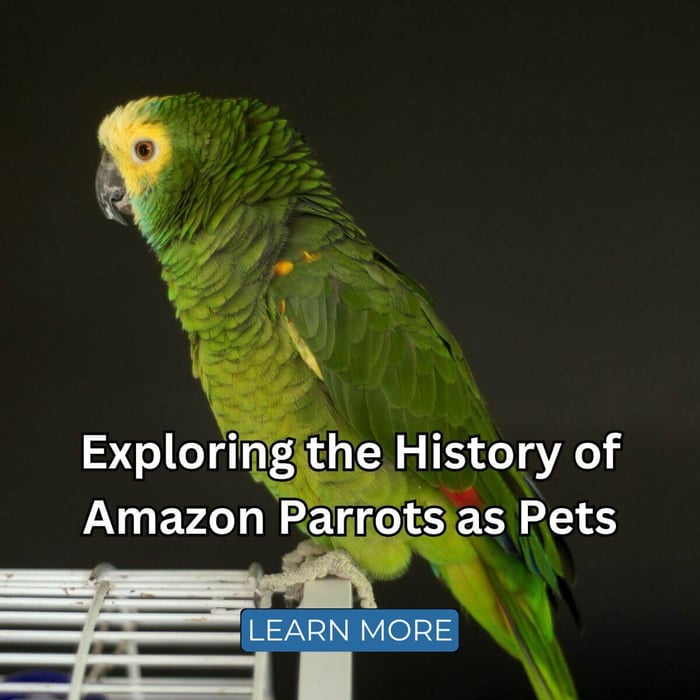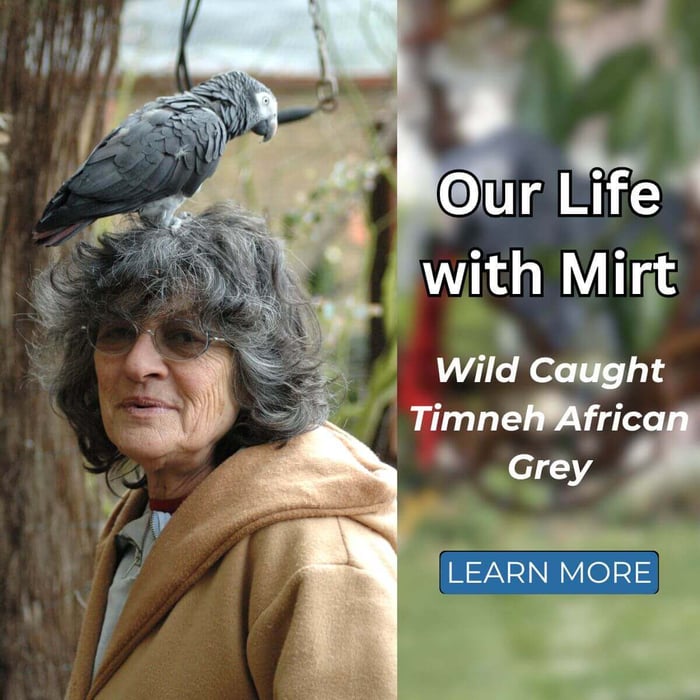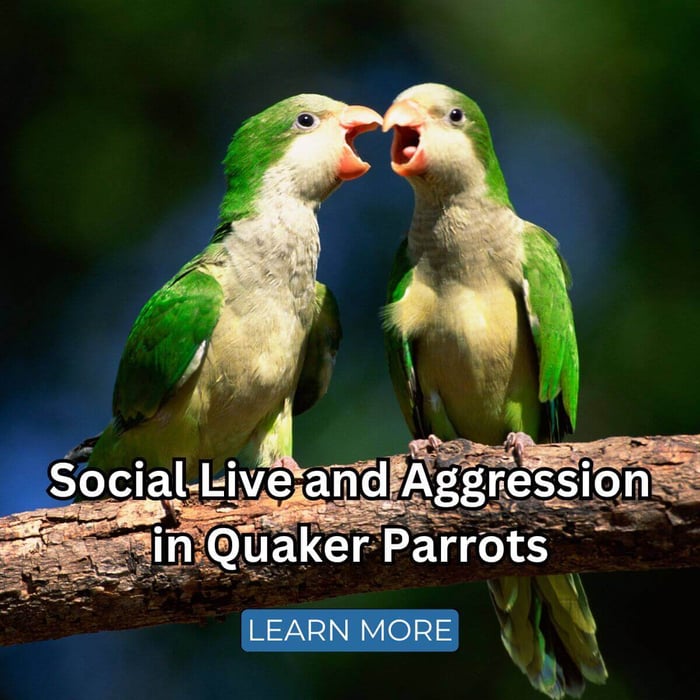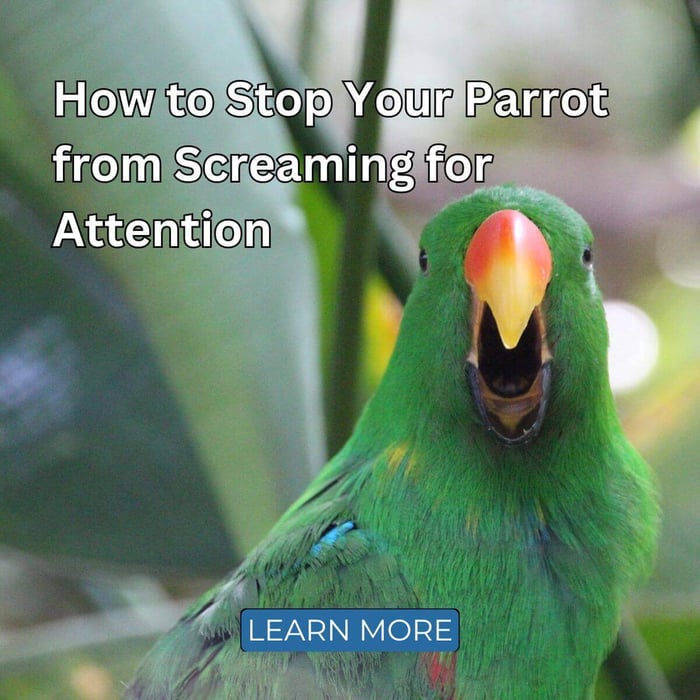5 Inspiring Ways to Impact Parrots on Change Pet's Life Day
Transforming Feathers: 5 Inspiring Ways to Impact Parrots on Change Pet's Life Day
Are you ready to make a real difference in your parrot's life? January 24th is the Change Pet's Life Day, which is the perfect opportunity to transform the feathers of your beloved bird and create a truly inspiring environment. In this article, we will explore five impactful ways to enrich your parrot's life and enhance their well-being.
From creating a stimulating and engaging habitat to providing a nutritious and varied diet, we will uncover the secrets to promoting physical and mental health for your feathered friend. Discover how interactive toys and puzzles can keep your parrot mentally sharp while regular exercise and social interaction can boost their overall happiness.
As we delve into each transformative method, you'll gain a deeper understanding of your parrot's unique needs and learn how to nurture a strong bond with your feathered companion. So get ready to spread your wings and embark on a journey of parrot transformation, making a positive impact on your beloved pet's life on Change Pet's Life Day.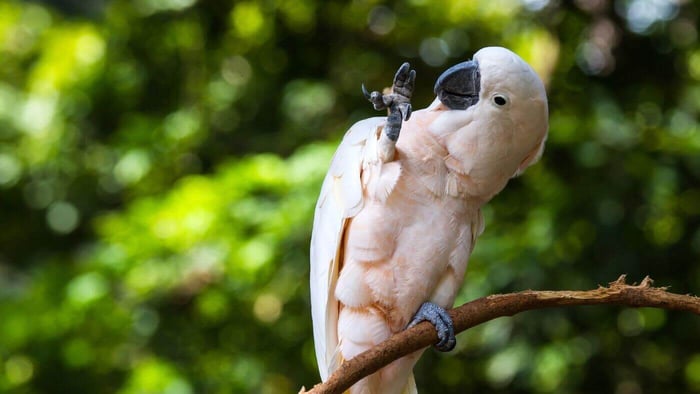
The Significance of Change Pet's Life Day for Parrots
Change Pet's Life Day serves as a poignant reminder of the responsibilities we bear as pet owners, particularly for those who share their lives with parrots. This special day encourages us to reflect on the quality of life that our feathered friends experience. It highlights the importance of making changes that can significantly enhance their well-being, ensuring they lead fulfilling, happy lives. For pet owners, this day presents an opportunity to recommit to providing the best care possible, focusing on the unique needs of parrots and recognising that they are not just pets but complex beings deserving of our love and attention.
Parrots are incredibly intelligent animals, often displaying personalities that can rival those of our closest companions. However, many parrots find themselves in environments that do not meet their emotional and physical needs. Change Pet's Life Day encourages us to assess our pets' situations critically and take actionable steps to improve their lives. Whether it's through a better diet, more enriching environments, or increased social interaction, this day serves as a catalyst for positive change.
Moreover, the significance of this day extends beyond individual pet care; it invites a broader conversation about the welfare of parrots in general. It nudges us to think about the responsibilities we have toward educating others about parrot care, advocating for their needs, and promoting their conservation. By celebrating Change Pet's Life Day, we not only enhance the lives of our own pets but also contribute to a culture of compassion and awareness surrounding avian care.
Understanding the Challenges Faced by Parrots as Pets
Parrots are unique pets that come with their own set of challenges, many of which stem from their natural instincts and behaviours that need to be acknowledged and catered to. One of the primary challenges is the lack of understanding about their social and emotional needs. In the wild, parrots are highly social birds that live in flocks, which makes them dependent on social interaction for their emotional health. When kept as solitary pets, they can develop issues such as loneliness, boredom, and even depression if their need for socialisation is not met.
Additionally, parrots often face challenges related to their environments. Many standard cages do not provide sufficient space for them to fly or engage in natural behaviours. This can lead to physical issues such as obesity, feather plucking, and other behavioural problems. Parrots require more than just food and water; they need an environment that stimulates their minds and bodies. The lack of proper enrichment can lead to a decline in their overall well-being, making it essential for pet owners to understand the importance of creating a nurturing habitat.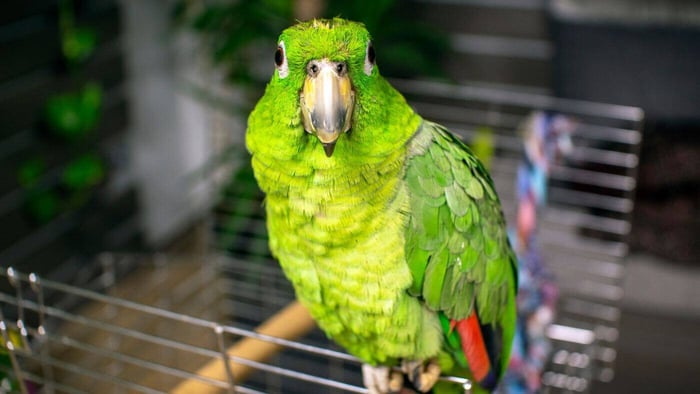
Another challenge is the misunderstanding about their dietary needs. Parrots have specific nutritional requirements that can often be overlooked. A diet lacking in variety can lead to health problems down the line, such as vitamin deficiencies and obesity. Understanding these challenges is crucial for any parrot owner who wishes to improve their pet's quality of life. Recognising and addressing these issues not only enhances the lives of these magnificent birds but also strengthens the bond between the pet and its owner.
The Importance of Environmental Enrichment for Parrots
Environmental enrichment is vital for the physical and mental health of parrots. In their natural habitat, parrots engage in various activities that stimulate their senses and encourage natural behaviours such as foraging, climbing, and socialising. Replicating these experiences in a domestic setting is essential for preventing boredom and promoting healthy mental stimulation. A well-enriched environment can significantly reduce the risk of behavioural issues arising from captivity, such as screaming, feather plucking, or aggression.
Creating an enriched environment involves providing a variety of toys, perches, and activities that challenge parrots both physically and mentally. For instance, toys that require problem-solving skills can keep their minds active and engaged. Different textures and materials can stimulate their natural instinct to chew and play, while a variety of perches encourages climbing and exercise. Environmental enrichment is not a luxury; it is a necessity for the well-being of parrots, allowing them to exhibit their natural behaviours and instincts within the confines of their homes.
Moreover, the benefits of environmental enrichment extend beyond mere entertainment. It promotes a happier, healthier parrot that is more likely to bond with its owner. When parrots are given the chance to explore and interact with their environment, they develop confidence and a sense of security. This, in turn, leads to a more positive and fulfilling relationship between the bird and its owner, making environmental enrichment a vital aspect of parrot care that cannot be overlooked.
5 inspiring Ways to Provide Enrichment for Parrots
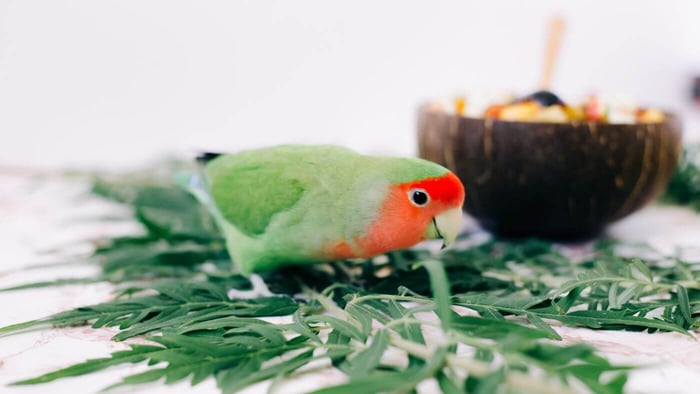
- Interactive Toys: One of the most effective ways to provide enrichment is through interactive toys designed specifically for parrots. These toys can range from puzzle feeders that challenge your parrot to think and work for their food to toys that require them to manipulate parts to access hidden treats. Such activities not only stimulate their minds but also satisfy their natural curiosity and instinct to forage. Regularly rotating and introducing new toys can keep their environment dynamic and engaging.
- Foraging Opportunities: Creating foraging opportunities is another enriching method that taps into your parrot's natural instincts. Foraging involves hiding food within safe materials, such as paper or inside toys, encouraging your parrot to search and work for their meals. This mimics the wild experience of searching for food and can significantly reduce boredom and associated behavioural issues. It's a simple yet effective way to keep your parrot mentally engaged and satisfied.
- Variety in Perches and Climbing Structures: Providing a range of perches and climbing structures is essential for encouraging physical activity. Different heights, textures, and widths can help mimic their natural habitat. Natural branches, ropes, and swings not only offer exercise but also promote foot health and prevent boredom. The more varied the climbing options, the more likely your parrot will engage in healthy physical activity throughout the day.
- Music and Sounds: Parrots are known for their vocal abilities and love to mimic sounds. Incorporating music or natural sounds can create a stimulating auditory environment. Some parrots enjoy listening to specific genres of music, while others may benefit from sounds that mimic their natural surroundings. You can even engage in vocal play with your parrot, encouraging them to imitate sounds or words, which can strengthen your bond and provide mental stimulation.
- Social Interaction: Lastly, one of the most enriching experiences for parrots is social interaction. Whether it's spending time with their human companions or, if appropriate, with other birds, socialising is crucial for their emotional health. Engaging in playtime, teaching tricks, or simply talking to your parrot can provide immense fulfilment. The more you communicate and interact with them, the more enriched their lives will be.
Creating a Stimulating and Safe Living Environment
Designing a stimulating and safe living environment for your parrot is paramount to their overall happiness and health. Start by ensuring that the cage is spacious enough for your bird to move around comfortably. A larger cage allows for more room to play and explore, which is essential for their mental and physical health. Consider the cage's layout, providing ample perches at different heights and ensuring that the bars are spaced appropriately to prevent escapes. You can check out our article on How to Choose the Right Parrot Cage.
Safety is also a primary concern when creating a living space for your parrot. Remove any potential hazards, such as toxic plants, exposed electrical cords, and small objects that could be ingested. It's essential to be aware of the materials used in toys and accessories, as some can be harmful if chewed or swallowed. Regularly inspect the cage and surroundings to ensure that everything remains safe and secure for your feathered friend.
In addition to safety, the aesthetic aspect of the environment can also play a role in stimulation. Incorporating natural elements such as branches, leaves, and safe plants can create a more inviting space reminiscent of their natural habitat. Using a variety of colours and textures in toys and accessories can also engage your parrot's visual senses. By combining safety with stimulation, you can create a living environment that not only protects your parrot but also encourages exploration and play.
Encouraging Physical and Mental Stimulation
Encouraging physical and mental stimulation is crucial for the well-being of parrots. Regular playtime outside of their cage is essential for promoting exercise and mental engagement. This can include allowing them to explore a safe area of your home, where they can fly, climb, and interact with various toys and objects. Supervised out-of-cage time fosters a sense of freedom and adventure, which is essential for their emotional and physical health.
Incorporating play into your daily routine can make a significant difference. Spend time engaging with your parrot using toys that encourage them to move and think, such as fetch games or hide-and-seek with treats. Not only does this foster a strong bond between you and your parrot, but it also keeps their minds sharp and bodies active. Creating a structured playtime routine can help your parrot anticipate and look forward to these moments of interaction.
Additionally, consider adding challenges to their routine that promote both physical and mental exercise. Setting up obstacle courses or using climbing structures can encourage your parrot to engage their muscles and explore their surroundings. This kind of stimulation is essential as it mimics the challenges they would face in the wild, promoting natural behaviours and preventing boredom from setting in.
The Benefits of Positive Reinforcement Training for Parrots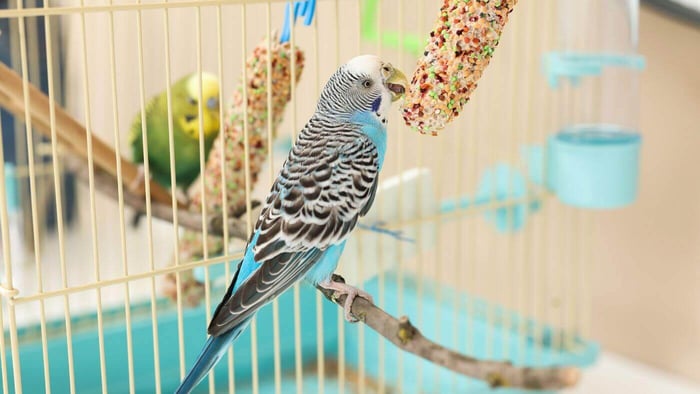
Positive reinforcement training is an effective method for teaching parrots new behaviours and tricks while simultaneously strengthening the bond between the bird and its owner. This training approach focuses on rewarding desired behaviours rather than punishing unwanted ones. Using treats, praise, or affection as rewards encourages parrots to repeat behaviours that earn them positive feedback. This not only makes the training process enjoyable but also fosters a trusting relationship between the parrot and its owner.
Training sessions should be kept short and fun to maintain your parrot's interest and attention. Frequent, short sessions are more effective than long, drawn-out ones, as parrots have relatively short attention spans. Incorporating play into training can make the experience more engaging and less stressful. By introducing a variety of tricks or commands, you can keep your parrot mentally stimulated while allowing them to showcase their intelligence and capabilities.
The benefits of positive reinforcement extend beyond just teaching tricks; it can also help mitigate behavioural issues. By redirecting unwanted behaviours through proper training techniques, you can guide your parrot toward more desirable actions. This method promotes a healthy learning environment and encourages your parrot to express themselves positively, leading to a happier and more well-adjusted pet.
Promoting Social Interaction and Companionship for Parrots
Social interaction is vital for the emotional and psychological well-being of parrots. In the wild, these birds are social creatures that thrive in flocks. Therefore, providing companionship, whether through human interaction or with other birds, is essential for their happiness. Spending quality time with your parrot through talking, playing, or simply being nearby can help fulfil their social needs and can lead to a deeper bond between you.
If you have multiple birds, ensuring they have opportunities to socialise with each other can be beneficial as well. Observing and interacting with their fellow feathered friends can provide important social cues and interactions that enrich their lives. However, it's essential to monitor interactions to ensure all birds are comfortable and safe, as not all parrots get along well with each other.
Additionally, consider engaging in group activities that allow for socialisation. Bird clubs or local avian groups can provide opportunities for your parrot to meet others while learning more about their care and behaviour. These social settings can offer new experiences for both you and your parrot, enhancing your understanding of their social needs and helping you create a more fulfilling environment.
How to Advocate for Parrot Welfare and Conservation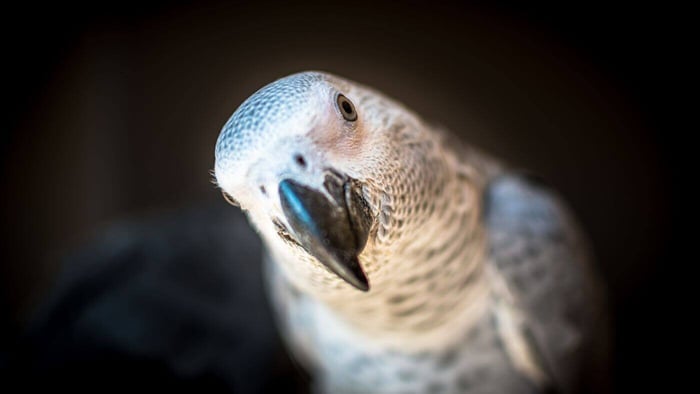
Advocating for parrot welfare and conservation is an essential aspect of being a responsible pet owner. This involves not only providing the best care for your own parrot but also raising awareness about the challenges faced by parrots worldwide. Many species of parrots are threatened due to habitat loss, illegal trapping, and trade. By educating yourself and others about these issues, you can help promote the conservation of these beautiful birds in their natural habitats.
Participating in local conservation efforts or supporting organisations dedicated to avian welfare can amplify your impact. Many groups focus on rescuing and rehabilitating parrots, providing education on responsible pet ownership, and working towards habitat preservation. By contributing time and resources or even just spreading the word about these organisations, you can help make a difference in the lives of parrots beyond your own home.
Moreover, being an advocate for parrot welfare includes educating fellow pet owners about proper care practices. Sharing knowledge about the specific needs of parrots, promoting the importance of environmental enrichment, and discussing the significance of socialisation can foster a community of responsible parrot owners. By leading by example and inspiring others to prioritise the well-being of their birds, you contribute to a culture of compassion and respect for these magnificent creatures.
Making a Positive Impact on Their Lives on Change Pet's Life Day
Change Pet's Life Day is more than just a day on the calendar; it's an opportunity to reflect on our roles as caregivers to parrots and to commit to making positive changes in their lives. By understanding the unique challenges that parrots face, we can take actionable steps to improve their environments, promote their well-being, and foster their natural behaviours. Each of the methods discussed throughout this article serves as a stepping stone toward creating a more enriching and fulfilling life for our feathered friends.
As responsible pet owners, we must prioritise not just the physical needs of our parrots but also their emotional and mental health. By incorporating enriching activities, encouraging social interaction, and advocating for their welfare, we create a holistic approach to parrot care that enhances their quality of life. Change Pet's Life Day is a call to action, inviting us to take a moment to appreciate our pets and to implement the changes necessary for their happiness.
FAQs
What is Change Pet's Life Day?
Change Pet's Life Day is an annual event marked on Jan 24th dedicated to enhancing the lives of pets, including parrots. It serves as a reminder for pet owners to improve their pets' living conditions and well-being through various enriching and caring activities.
How can I make my parrot's environment more engaging?
To make your parrot's environment more engaging, incorporate a variety of interactive toys, create foraging opportunities, and provide diverse perches and climbing structures. Regularly change these elements to keep the environment dynamic and interesting for your parrot.
What is the best diet for my parrot?
Parrots thrive on a varied diet that includes fresh fruits, vegetables, nuts, and high-quality pellets. Ensure their diet is balanced and tailored to their specific species' needs to maintain optimal health and vitality.
Why is social interaction important for parrots?
Parrots are naturally social creatures that require interaction to maintain their mental and emotional health. Regular playtime, training, and even simple conversations with your parrot can greatly enrich their lives and strengthen your bond.
How can I participate in parrot welfare and conservation?
You can advocate for parrot welfare by supporting local conservation efforts, joining bird clubs, and educating others about the needs and challenges faced by parrots. Raising awareness and contributing to organisations focused on parrot rescue and habitat preservation can also make a significant impact.

